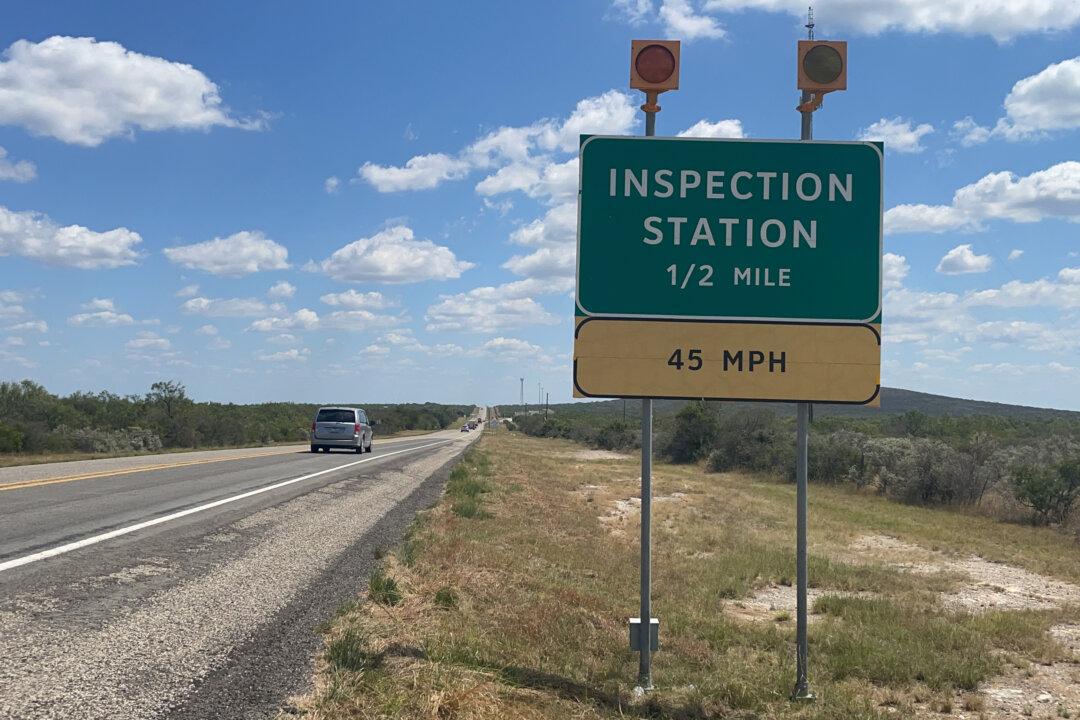UVALDE, Texas—Border Patrol has been forced to close down several highway checkpoints near the border to free up more agents to deal with the crisis unfolding under the international bridge in Del Rio, Texas.
The two highest-volume checkpoints now closed are on Highway 57 from Eagle Pass to San Antonio and Highway 90 from Del Rio to San Antonio. A checkpoint at Comstock, Texas, is also closed. The closures leave the highways largely unimpeded for human and drug smugglers—most of the extra Texas state troopers deployed to the border highways are also being pulled to the bridge for security.





